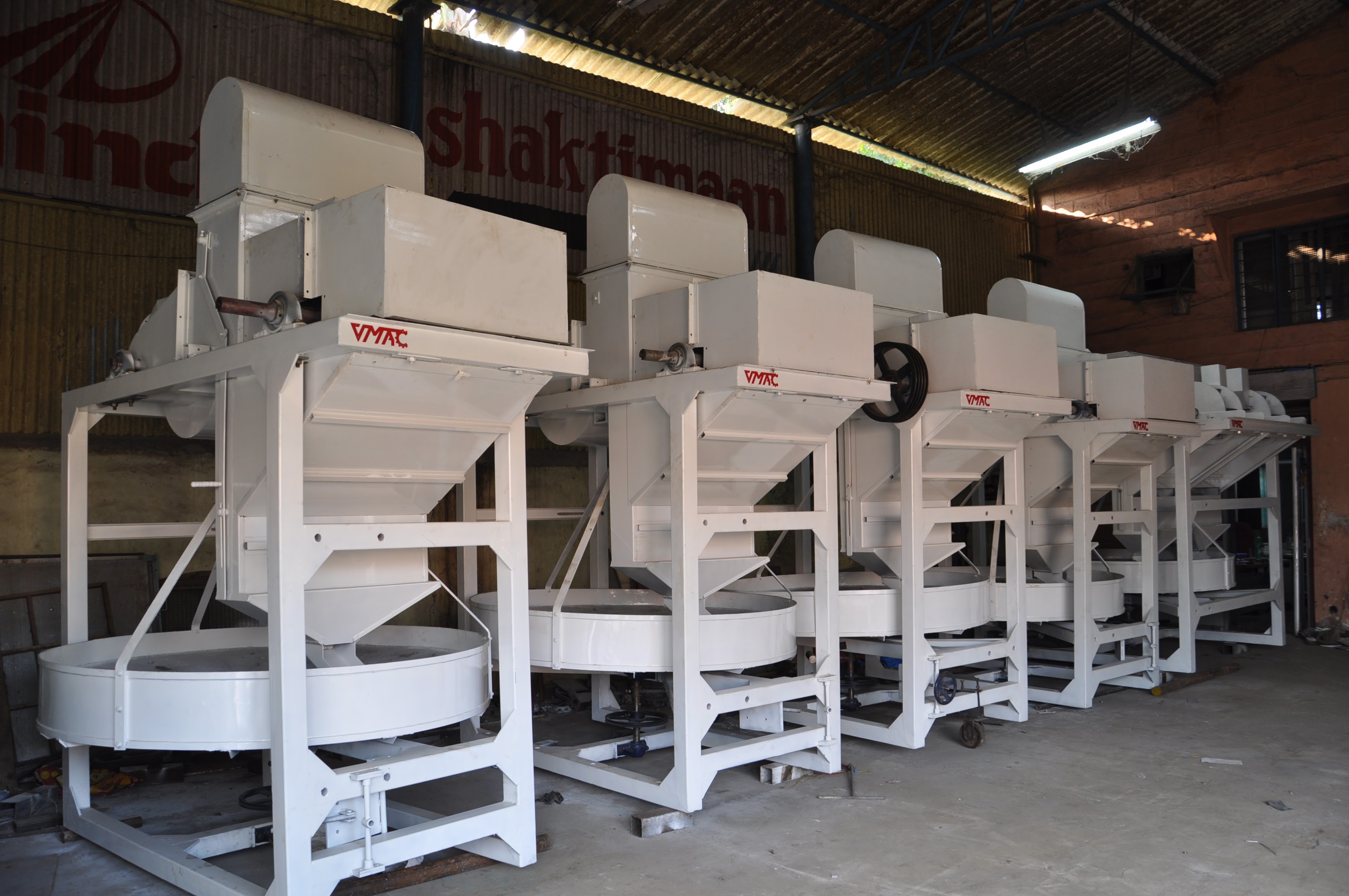
Production
Mastering Coffee Production
At Vmac Industries, we've mastered the balance between traditional craftsmanship and modern technology.
Coffee is one of the most beloved beverages worldwide, and its rich flavor and aroma are largely attributed to the quality of the coffee beans used. Many coffee enthusiasts agree that freshly roasted and properly processed coffee beans taste better than pre-ground coffee or instant alternatives. In this article, we'll delve into the reasons why coffee beans taste better, the science behind their flavor, and how you can maximize the taste of your coffee.
Whole Beans vs. Ground Coffee: Whole coffee beans have less surface area exposed to air, reducing oxidation.
Flavor Preservation: Freshly roasted beans retain volatile oils and aromatic compounds that contribute to taste.
Resting After Roasting: Beans release carbon dioxide for a few days after roasting, which can affect extraction if brewed immediately.
Optimal Time to Brew: Allowing beans to rest for 24 to 72 hours can enhance flavor.
Over 800 Flavor Compounds: Coffee beans contain a vast array of compounds that contribute to their complex taste.
Aromatic Oils: Essential oils in beans are responsible for the rich aroma and depth of flavor.
Maillard Reaction: During roasting, sugars and amino acids react to create new flavor compounds.
Caramelization: Breakdown of sugars adds sweetness and complexity.
Light Roast: Preserves more of the bean's original characteristics, with brighter acidity and floral notes.
Medium Roast: Balances acidity and body, highlighting sweetness.
Dark Roast: Emphasizes bold flavors with reduced acidity.
Advanced Roasters: Modern Roasting & Blending Equipment allows precise control over roasting profiles.
Consistency: Proper equipment ensures uniform roasting for consistent taste.
Flavor Release: Grinding releases aromatic compounds that dissipate quickly.
Enhanced Extraction: Fresh grounds allow for better extraction of flavors during brewing.
Adjusting Grind Size: Different brewing methods require specific grind sizes for optimal flavor.
Uniform Grind: Consistent particle size ensures even extraction.
Airtight Containers: Prevent exposure to oxygen.
Cool, Dark Place: Avoid heat and light to preserve flavor compounds.
Coffee Silos: Our Coffee Silos offer optimal storage conditions for maintaining bean freshness.
Humidity Control: Proper storage prevents moisture absorption that can degrade flavor.
Clean Flavor Profile: Removes fruit pulp before drying, leading to brighter acidity.
Consistency: Offers uniformity in bean characteristics.
Fruitier Notes: Beans dry with pulp intact, absorbing sugars and developing sweet, fruity flavors.
Complexity: Adds depth to the flavor profile.
Balanced Flavor: Partial removal of pulp leads to a mix of characteristics from both wet and dry methods.
Learn more about processing methods in our article on How Are Coffee Beans Cured?
Filtered Water: Impurities can affect taste.
Optimal Temperature: Brewing between 195°F and 205°F extracts flavors effectively.
Pour-Over: Highlights nuanced flavors.
French Press: Emphasizes body and richness.
Espresso: Concentrated flavors with crema.
Clean Equipment: Residual oils can impart off-flavors.
Proper Technique: Follow best practices for your chosen brewing method.
Coffee beans taste better due to the preservation of delicate flavor compounds that are lost when coffee is pre-ground or improperly processed. Factors such as freshness, roasting, grinding, storage, and brewing techniques all play significant roles in enhancing the taste of coffee. By understanding and optimizing these elements, you can elevate your coffee experience and enjoy the rich, complex flavors that high-quality coffee beans offer.
Choose Quality Beans: Opt for freshly roasted beans from reputable sources.
Invest in Good Equipment: Consider our Roasting & Blending Equipment and Coffee Graders for quality control.
Learn About Processing: Explore different processing methods to find your preferred flavor profiles.
Practice Proper Storage: Use airtight containers or Coffee Silos to keep beans fresh.
Experiment with Brewing: Try various brewing methods to discover what best suits your taste.
Lastest blog posts